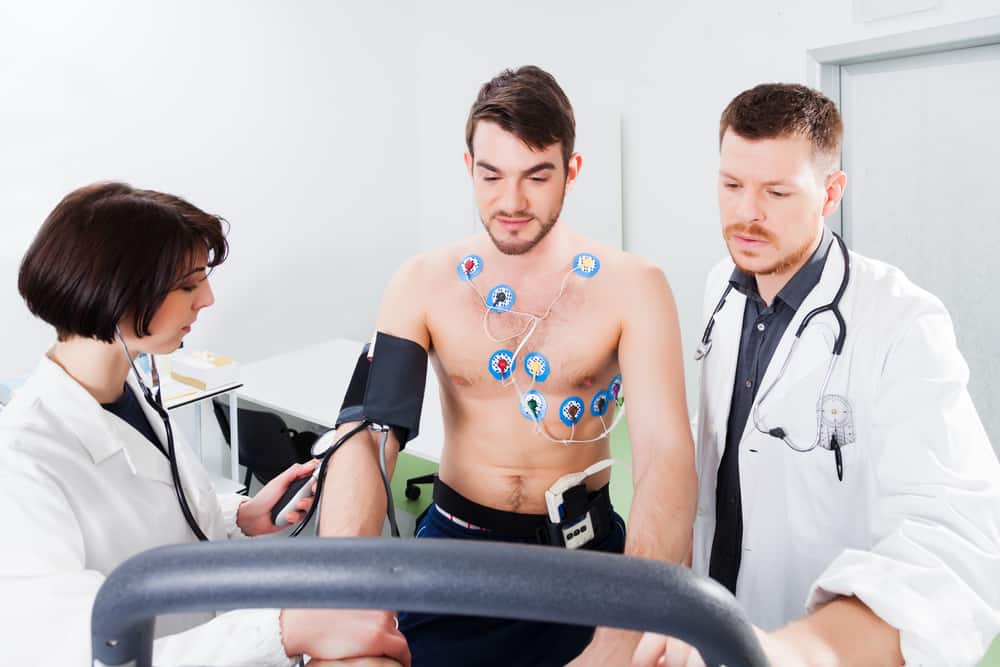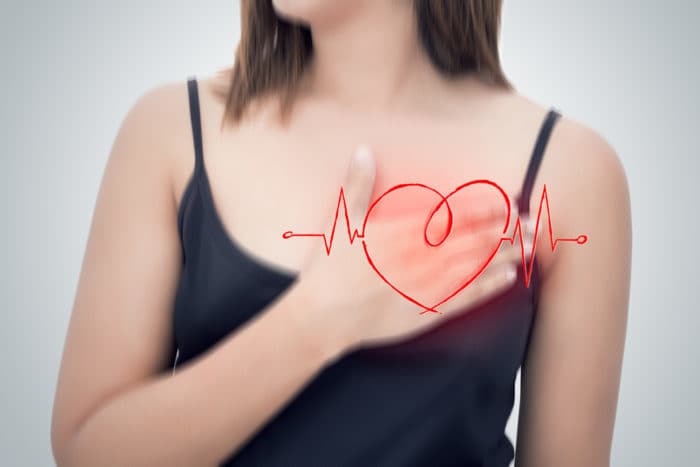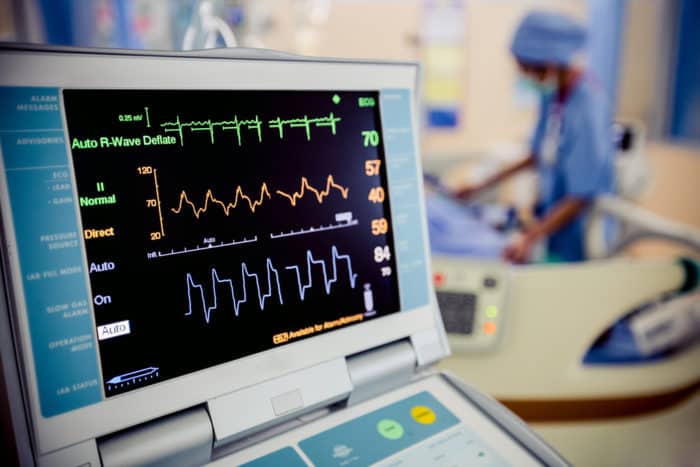Contents:
- Medical Video: What is a Treadmill Stress Test?
- What is the purpose of doing an ECG stress test?
- Who needs to do an ECG stress test?
- What must be prepared before doing an ECG stress test?
- How do ECG stress tests work?
Medical Video: What is a Treadmill Stress Test?
An ECG stress test, also called stress test The heart is a doctor's examination to find out how your heart responds to pressure during physical activity. Usually this test is done to assess the severity of coronary artery disease and to know a person's physical fitness. In general, an EKG stress test is a safe and painless procedure to measure how well your heart is functioning. Check out the ECG stress tests below.
What is the purpose of doing an ECG stress test?
The purpose of the ECG stress test includes:
- Seeing the intake of blood flowing to the heart during physical activity
- Detect heart rhythm abnormalities and electrical activity in the heart
- See how well the heart valve works
- Assess the severity of coronary artery disease that patients have
- Assess how effective the heart treatment plan has been done
- Determine the limits of safe physical exercise before starting a heart rehabilitation program due to a heart attack or heart surgery
- Evaluate heart rate and blood pressure
- Knowing the level of physical fitness
- Determine the prognosis of a person having a heart attack or dying from heart disease
Who needs to do an ECG stress test?
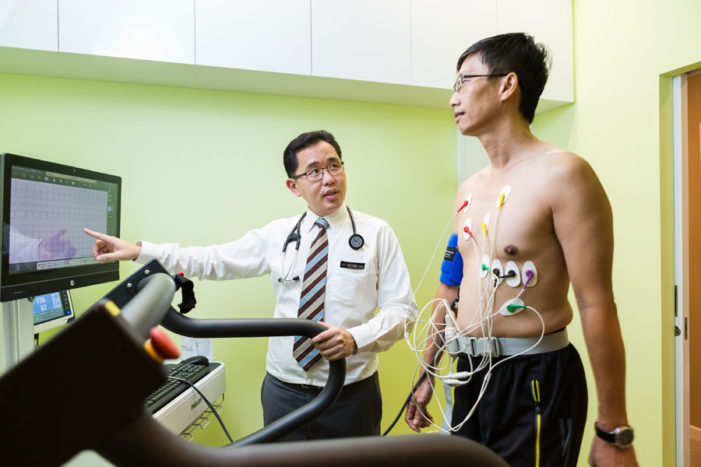
Usually ECG stress tests are for patients with conditions:
- Has a family history of heart disease
- Have coronary heart disease
- Allegedly has a heart problem because it raises several supporting symptoms such as chest pain, irregular heartbeat, shortness of breath, and so on
- Has a history of hypertension, diabetes, and high cholesterol
- An active smoker
What must be prepared before doing an ECG stress test?
There are a number of things you must prepare before carrying out this examination, including:
- Tell your doctor all the drugs, vitamins, herbs and supplements you use
- Tell your doctor if you are pregnant
- Make sure you get enough sleep before the test
- Don't eat or drink anything except water for 4 hours before the test
- Do not drink or eat anything that contains caffeine 12 hours before the test
- Do not take heart medication on the day of the exam, unless the doctor allows it
- Use comfortable shoes and long pants
- Use a short-sleeved shirt with front buttons to make it easier to attach ECG electrodes to the chest
- If you use inhaler for asthma or other respiratory problems, also take it during the test
Based on your medical condition, your doctor may ask you to make other special preparations not mentioned above. Consult a doctor for more information.
How do ECG stress tests work?
This procedure lasts about 2 to 3 hours and will be carried out under the supervision of a cardiologist or trained medical staff. Before carrying out the test, the medical staff will ask you to remove all jewelry, watches, or other metal objects attached to the body. You are also asked to remove the clothes worn during the test.
No need to worry, this is a standard procedure that must be done before starting the test. Health workers will ensure that your vital organs are maintained by covering them using cloth and only showing the necessary parts. If your chest is very hairy, the medical team may shave or cut the hair as needed, so that the electrode can stick tightly to the skin.
Electrodes will be placed on the chest and stomach. This electrode serves to measure electrical activity in the heart and send the results to an ECG monitor that has been installed. The medical staff will also install a blood pressure meter on the arm. Initial examination, or baseline, ECG and blood pressure will be done when you sit and stand.
After that you will be asked to walk on a treadmill or use a static bicycle from the lowest to the highest intensity. Sa medical check-up will closely monitor any changes in heart rate, blood pressure, and EKG due to body activity and stress.
Notify medical staff immediately if you experience dizziness, chest pain, staggering, extreme shortness of breath, nausea, headache, leg pain, or other symptoms during your physical activity. The test can be stopped if you experience severe symptoms.
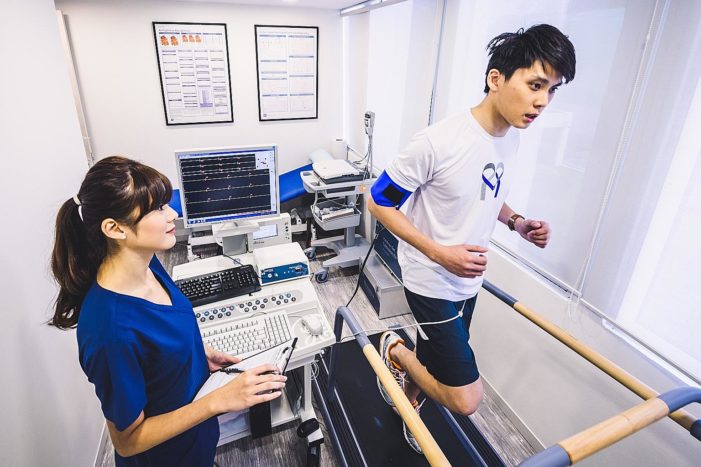
After you complete all the exercises, the intensity of the exercise will be slowed slowly to "cool" and help avoid nausea or cramping because it suddenly stops.You will sit in a chair and your ECG and blood pressure will be monitored until it returns to normal or near normal. This may take 10 to 20 minutes.After you know the ECG end result and blood pressure, the ECG electrode and the blood pressure pressure device attached to the arm will release. You may also wear your clothes again.
Some patients may not be able to do treadmill or static bicycle exercises. If this is the case, the doctor will perform an EKG stress dobutamine procedure. This is another form of ECG stress test. The difference is, this procedure is done by giving a drug that stimulates the patient's heart and makes the heart think that the body is exercising.
You may feel tired and wheezing for several hours after taking the test, especially if you rarely exercise. If you feel tired for more than a day, contact your doctor immediately.

